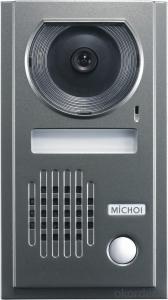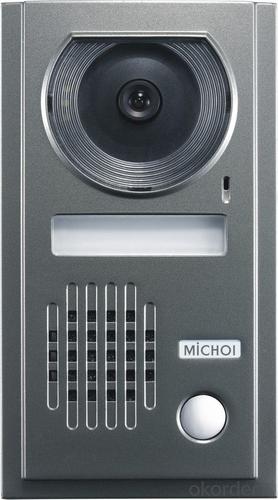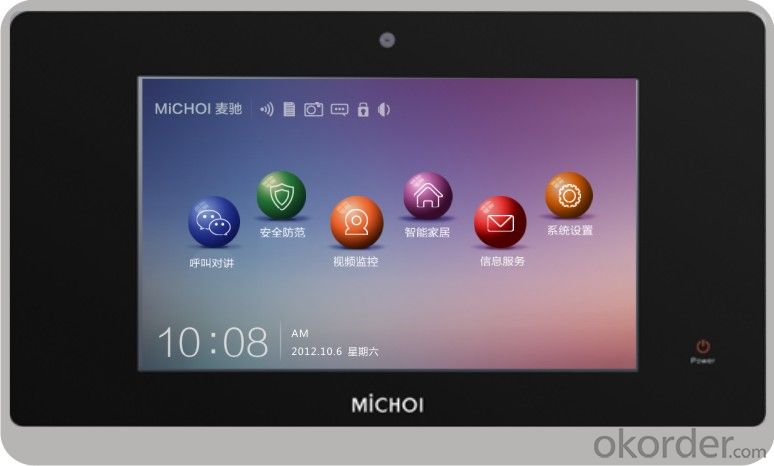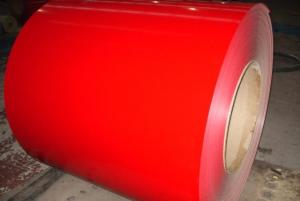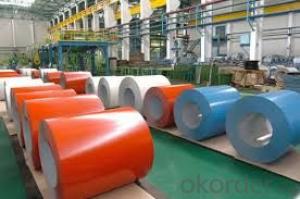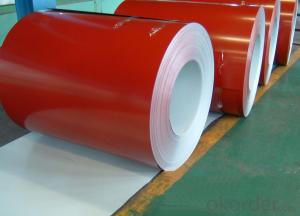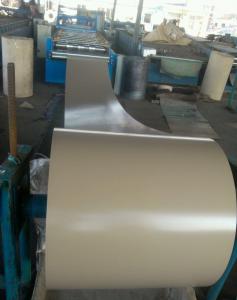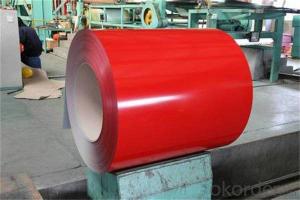Color Coated PPGI/PPGL Steel Sheets/ Steel Coil
- Loading Port:
- China Main Port
- Payment Terms:
- TT or LC
- Min Order Qty:
- 50 m.t.
- Supply Capability:
- 20000 m.t./month
OKorder Service Pledge
OKorder Financial Service
You Might Also Like
1. PPGI/PPGL Steel Sheets/Coil Description:
With GI as base material, after pretreatment (degrease and chemical treatment ) and liquid dope with several layers of color, then after firing and cooling, finally the plate steel is called pre-painted galvanized (aluzinc) steel. Pre-painted galvanized steel is good capable of decoration, molding, corrosion resistance. It generally displays superior workability, durability and weather resistance.
2.Main Features of the PPGI/PPGL Steel Sheets/Coil:
• Excellent process capability
• Smooth and flat surface
• Workability, durability
• Excellent heat resistance performance
• High strength
• Good formability
• Good visual effect
3.PPGI/PPGL Steel Sheets/Coil Images
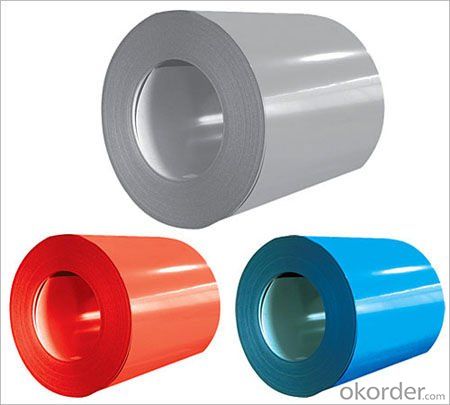
4.PPGI/PPGL Steel Sheets/Coil Specification
Standard: AISI, ASTM, BS, DIN, GB, JIS
Grade: DX51D, DX52D
Thickness: 0.17-2.0mm
Brand Name: KMRLON
Model Number: coil
Type: Steel Coil
Technique: Cold Rolled
Surface Treatment: Coated
Application: Boiler Plate
Special Use: High-strength Steel Plate
Width: 20-1250mm
Length: customized
commoidty: pre-painted galvanized steel coil
Thickness: 0.13-4.0mm
width: 20-1250mm
zinc coating: 40-180g/m2
printing thickness: top side: 20+/-5 microns, back side: 5-7 microns
color: all RAL color
surface treatment: color coated
coil weight: 4-7 tons
coil ID: 508/610mm
packaging: standard seaworthy packing
5.FAQ of PPGI/PPGL Steel Sheets/Coil
1. What’s the application of this product?
Roof, roof structure, surface sheet of balcony, frame of window, etc.
2. What’s the brand of the paint?
We use the best brand of all of the word—AKZO.
3. How to guarantee the quality of the products?
We have established the international advanced quality management system,every link from raw material to final product we have strict quality test;We resolutely put an end to unqualified products flowing into the market. At the same time, we will provide necessary follow-up service assurance.
4. How long can we receive the product after purchase?
Usually within thirty working days after receiving buyer’s advance payment or LC. We will arrange the factory manufacturing as soon as possible. The cargo readiness usually takes 15-25 days, but the shipment will depend on the vessel situation.
- Q: How are steel coils used in the production of marine vessels?
- Steel coils are extensively used in the production of marine vessels due to their strength, durability, and versatility. These coils are typically made of high-quality steel, which is known for its ability to withstand harsh marine environments and resist corrosion. One of the primary applications of steel coils in the production of marine vessels is for the construction of the hull. The steel coils are formed into plates, which are then welded together to create the hull structure. The strength of these coils ensures that the hull can withstand the extreme forces and pressures experienced during a vessel's operation, including rough seas and heavy cargo loads. Additionally, steel coils are used in the production of various components and fittings within a marine vessel. These coils can be shaped, cut, and formed into different parts, such as bulkheads, decks, and superstructures. The versatility of steel allows manufacturers to create complex shapes and structures that are essential for the efficient and safe operation of a marine vessel. Moreover, steel coils are also used for the fabrication of pipes and tubing systems within marine vessels. These pipes are crucial for various functions, such as transporting fluids, fuel, and ventilation throughout the vessel. The strength and corrosion resistance of steel coils ensure that these pipes can withstand the high pressures and corrosive nature of marine environments. Furthermore, steel coils are utilized in the production of marine vessel equipment, such as winches, cranes, and anchor systems. These components require a high-strength material that can withstand heavy loads and constant use. Steel coils provide the required strength and durability to ensure the reliable performance of these critical equipment. In conclusion, steel coils play a vital role in the production of marine vessels. Their strength, durability, and versatility make them an ideal material for constructing the hull, manufacturing various components, fabricating piping systems, and creating equipment. The use of steel coils ensures the safety, efficiency, and longevity of marine vessels, enabling them to navigate the challenging conditions of the open seas.
- Q: Is steel framing eco friendly? Why or why not.
- No because unlike the timber in trees, it is not a renewable resource and takes much heat energy to produce.
- Q: How are steel coils inspected for formability?
- Steel coils are inspected for formability through a combination of visual inspection, physical testing, and advanced technologies such as laser scanning and digital image correlation. These methods assess the coil's surface condition, dimensional accuracy, and mechanical properties to ensure it meets the required standards for various forming processes.
- Q: How are steel coils inspected for defects?
- Steel coils are inspected for defects using various methods to ensure that the quality of the product meets the required standards. One common method is visual inspection, where trained inspectors examine the surface of the coils for any visible defects such as cracks, scratches, or dents. This is usually done by visual observation or with the assistance of magnifying tools. Another method is magnetic particle inspection, which is used to detect surface and near-surface defects such as cracks or voids. In this process, a magnetic field is applied to the steel coil, and a magnetic powder is applied to the surface. If there are any defects, the magnetic powder will be attracted to them, making them visible to the inspector. Ultrasonic testing is also commonly used to inspect steel coils for defects. In this method, high-frequency sound waves are transmitted into the coil, and the reflected waves are analyzed. Any deviations in the sound waves can indicate the presence of defects such as cracks or voids within the coil. Additionally, eddy current testing is employed to detect defects in steel coils. This method uses electromagnetic induction to generate eddy currents within the coil. Any changes in these currents caused by defects in the material are detected and analyzed by the inspector. Lastly, some steel coils may undergo destructive testing, where a sample is taken from the coil and subjected to various tests such as tension or bend testing. These tests are performed to evaluate the mechanical properties of the steel, which can indirectly indicate the presence of defects. Overall, steel coils are inspected for defects through a combination of visual inspection, magnetic particle inspection, ultrasonic testing, eddy current testing, and potentially destructive testing. These methods ensure that any defects are identified and addressed, ensuring that only high-quality steel coils are delivered to customers.
- Q: What's the length of a coil of cold rolled steel? Is there a standard?
- Generally there is no standard length, to customer demand to roll weight, because customers with steel coil production capacity is different, lifting ability of a volume can do longer, on the contrary, do small points.
- Q: What are the different types of steel coatings for coil protection?
- There are several different types of steel coatings for coil protection, including galvanized coatings, zinc-nickel coatings, organic coatings, and metallic coatings. Galvanized coatings involve applying a layer of zinc to the steel surface to protect it from corrosion. Zinc-nickel coatings offer enhanced corrosion resistance and improved adhesion properties compared to traditional galvanized coatings. Organic coatings, such as paint or polymer coatings, provide a protective barrier against corrosion and can also offer aesthetic benefits. Metallic coatings involve applying a thin layer of a different metal, such as aluminum or tin, to the steel surface to provide corrosion resistance.
- Q: I was wondering what kind of company casts and sells steel without acting as a contractor as well. They only sell steel no install it
- If you are talking about raw steel materials and products I believe you are talking about a steel processor and warehouse company or a steel distributor. There are many different points along the steel manufacturing process that you could buy steel products. It would depend on various factors. Depending the amount, type, grade, gauge, properties, origin and a host of other elements you could purchase the steel in billet, plate, diamond plate, rolled sheet (cold or hot), coil, beam, stamped, pickled, scrapped, etc. You get the idea. Now I don't know where you are in the world, but you can go to one of the two sites below, which I have used for product sourcing and research before. The last one is a major manufacturer that I have actually been to. I hope this helps.
- Q: How do steel coils differ in terms of size and weight?
- Steel coils can differ in terms of size and weight based on the specific requirements and applications. The size of steel coils can vary depending on the industry and intended use, ranging from small coils weighing a few hundred kilograms to larger coils weighing several metric tons. The weight of steel coils is primarily determined by the thickness, width, and length of the coil, with thicker and wider coils generally being heavier. Therefore, the variation in size and weight of steel coils is based on the specific needs of different industries and applications.
- Q: I want to make a chess set out of stainless steel, but I'm not sure what type of mold I need or where I can go to have the steel melted and molded for me. Any ideas? I live in Southern, NJ.
- stainless steel is really hard to work with and will be really expensive to pour as not too many foundries do that. As far as tools go, I know that for e.g.drilling stainless steel cobalt bits are best, but even they don't last for very long. If you use normal drill bits stainless steel will ruin them. So how much metal working skills do you have? I would suggest to use a material you have experience with. Or make a chess set from nuts and bolts. You can buy them from stainless steel and the assembly is easy. See links for a few examples and/or use google to find more.
- Q: How are steel coils used in the manufacturing of wind turbines?
- Steel coils are used in the manufacturing of wind turbines for various purposes, including the fabrication of tower structures, rotor blades, and other components. The steel coils are typically processed and shaped into specific forms, such as rolled sections for tower construction or sheets for blade manufacturing. These coils provide the necessary strength, durability, and structural integrity required for the efficient and reliable operation of wind turbines.
Send your message to us
Color Coated PPGI/PPGL Steel Sheets/ Steel Coil
- Loading Port:
- China Main Port
- Payment Terms:
- TT or LC
- Min Order Qty:
- 50 m.t.
- Supply Capability:
- 20000 m.t./month
OKorder Service Pledge
OKorder Financial Service
Similar products
Hot products
Hot Searches
Related keywords
